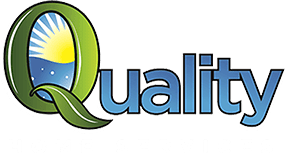What You Need to Know About Your Indoor Air Quality
When we talk about indoor air quality, we are concerned with how clean the air is inside your home. Generally speaking, this means we are looking at the levels of contaminants, like pollen, mold spores, dust, pet dander, and other pollutants that may affect your health and comfort. Those who suffer from allergies, asthma, or other respiratory issues are particularly susceptible to indoor air quality issues. You may experience the symptoms of poor indoor air quality immediately or over time. Occasionally, indoor air quality issues can lead to long-term health problems.
Common symptoms of poor indoor air quality can include:
- Sneezing
- Headaches
- Running nose
- Itchy throat
- Trouble breathing
- Irritation in the ears, nose, and throat
The good news is that most indoor air quality problems are easily fixed by purifying your home's air, and most symptoms go away quickly. However, it is important to know that there are situations in which indoor air contamination can have more serious, long-term effects. For example, if your home has a mold problem, you may experience long-term lung issues. Therefore, if you notice any signs of an air quality issue, you should contact Quality Home Services as soon as possible to discuss your options for resolving it.
Review the EPA's website here to learn more about indoor air quality.
We know that indoor air quality can be a tricky issue to resolve. With this in mind, we work to help educate our customers on some of the most important things to know about preserving and improving your indoor air quality. Keep reading for more FAQs about indoor air quality and how you can improve it.
FAQ #1: Why Is My Indoor Air Quality So Bad in the Summer?
You may have noticed that the air quality outside worsens in summer. This can be especially true here in the Fresno area, where we see extreme summer heat. The same is also true of your indoor air quality. Air quality across the board tends to dive as temperatures rise. So, why is this?
Heat and humidity can both raise pollutant levels outside. Additionally, in the summer, we see very little rain (if any), so we lose the natural air filtration that rain provides. Furthermore, in the summer our electricity usage increases, leading to increased emissions from power plants. Finally, many of our summertime activities also contribute to air pollution, such as camping fires, fireworks displays, increased vehicle travel, and more.
But how does this translate to poorer indoor air quality? Keep reading to find out!
FAQ #2: Why Is Indoor Air Quality Worse than Outside?
Firstly, in the summer we use our AC's almost constantly. With temperatures in the triple digits, we can't live without our air conditioners. However, this also means we keep our homes shut up and closed most of the season. Air conditioners recycle air; consequently, we aren't getting fresh air. This means that pollutants in your are getting trapped there. Additionally, many of our home appliances contribute more pollutants (for example, fuel combustion appliances like gas ranges and water heaters). While there are some things we can do to help preserve our indoor air quality, like changing air filters in our HVAC system and opening windows in the evening to get fresh air in, this isn't always enough.
FAQ #3: Do Air Purification Systems Really Make a Difference?
If you are struggling to maintain good air quality in your home, it might be time to consider installing an air purification system, like the HealthWay air filtration system. Not only do air filtration systems make a difference, but they start dramatically reducing the contaminants in your air right away. In fact, a HealthWay air filtration system can rid your air of 90% of the contaminants in as little as 30 minutes.
Air purifiers like the HealthWay Deluxe can be placed in any room in your house, run quietly, and generally are unobtrusive. They run continuously, all year long, and can even help remove unpleasant odors from your home.
FAQ #4: Is a HealthWay Air Filtration System Better than a HEPA System?
HEPA (high-efficiency particulate air) filters are mechanical air filters designed to remove at minimum 99.97% of particulates (such as dust, pollen, mold, etc.) sized at 0.3 microns. Generally speaking, HEPA is considered the Gold Standard in air filtration. However, the HealthWay air filtration system is four times stronger than a HEPA filter and can capture up to 99.99% of particulates at 0.007 microns. Consequently, a HealthWay system is more effective at cleaning the air in your home.
Get Help Improving Your Home's Air Quality
At Quality Home Services, we know how important it is to have clean air. If you are suffering from allergies and other irritations and have noticed that the air quality in your home isn't as good as you would like, reach out to our air filtration systems team for help. We can take a look at your current situation, discuss your goals, and help you determine if an air purification system, like the HealthWay Deluxe, is a good option for you.
Our team knows that installing a new air filtration system can be a big investment, and we want to ensure that our customers are as excited about their new system as we are. Therefore, we are always honest when offering guidance and will never pressure you to purchase products or services you do not need.
Review our blog for more information on improving your indoor air quality.

